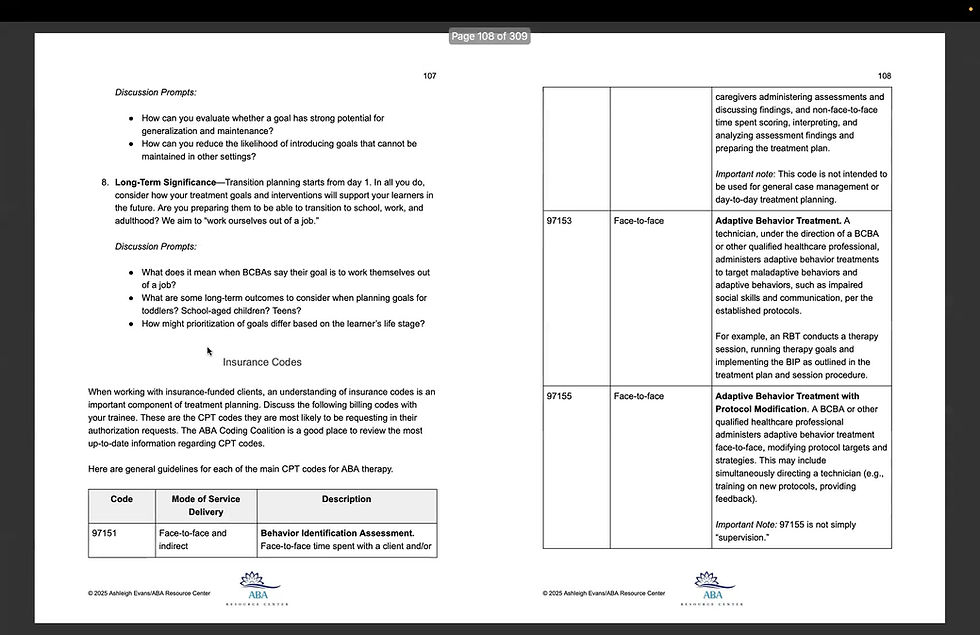Why People Fail the RBT Exam—And How to Pass the First Time
- Ashleigh

- Aug 8
- 4 min read

Pursuing RBT certification is an exciting step in one's career. But for many, taking the RBT exam can feel daunting. This exam has a notoriously low passing rate, and it has steadily declined over the last few years. Understanding why people fail can help you avoid common mistakes and effectively prepare to pass the exam on your first try.
What is the RBT Exam Pass Rate?
According to the BACB, in 2024, 73% of first-time test takers passed their exam. Shockingly, the pass rate for subsequent attempts is even lower. On retake attempts, only 36% of candidates pass. This highlights the importance of taking exam preparations seriously on your first try. The RBT exam is very much a "passable" exam. However, there are many common, avoidable mistakes candidates make.
How Many Times Can You Fail?
When you're approved to sit for the exam, the BACB allows you eight attempts within a 12-month window. If you don't pass within 12 months or you fail all eight attempts, you have to reapply for the exam.
Common Reasons People Fail the RBT Exam
So, with such a high rate of test takers who fail this exam, what are the reasons for it? Let's consider six of the most common reasons people fail the RBT exam and what you can do to avoid these mistakes.
Taking a Poor Quality RBT Course
One of the things that raises your likelihood of failing the exam is taking a poor-quality RBT course. Not all courses are created equally. You can get a good idea about a course's quality based on its pass rates. Avoid 40-hour courses with low pass rates. What you should do: Opt for a course with a higher pass rate, like AppleTree Connection. They have consistently been recognized by the BACB as one of the top 5 RBT courses based on pass rate.
Failure to Prepare for the Exam Format
Some candidates are simply unprepared for the format of the RBT exam and wording of the questions. What you should do: Ensure you understand what to expect when you take the RBT exam. Take a few mock exams to get a feel for the wording of the questions.
Cramming or Not Studying at All
For most people, this is not an exam that they can take without some study prep. Sure, there are outliers who take the exam on a whim and pass, but that's not the majority. Failing to take time to prepare for the exam does you a disservice. What you should do: Create a study schedule that allows you to review the material in small, manageable chunks over a few weeks. There are nearly 40 items on the RBT Task List. Take your time mastering all of the concepts within each item.
Learning Concepts Without an Understanding of How They Apply to Real-World Scenarios
The exam tests your knowledge not only of ABA concepts but also of how they apply to real-world situations. Gaining fluency in terminology is great, but you also have to understand how the concepts are applied. What you should do: Take mock exams to ensure you understand how to answer questions based on various scenarios.
Test Anxiety
Even some well-prepared candidates can struggle with nerves. Anxiety can cloud your thinking, slow you down, and lead to second-guessing. Unfortunately, the exam is timed, with a 90-minute limit, so overcoming that anxiety is important.
What you should do: When you take RBT practice exams, try to simulate the testing environment. Set a timer and take the exam in a quiet space free of distractions. Practice breathing exercises or positive affirmations to manage your nerves.
Insufficient Hands-on Training
Those with hands-on experience in the field have a greater chance of passing the exam compared to those who are brand new. BCBAs vary in the time they dedicate to the competency assessment and hands-on practice with an RBT candidate. When BCBAs rush through a competency assessment or complete it based only on interviews or role-plays (which is NOT BACB-compliant), they do a disservice to the aspiring technician. What you should do: Advocate for hands-on training and make sure your BCBA runs the competency assessment correctly. To be in compliance with BACB requirements, at least three of the competency assessment items must be completed with a client. If you're feeling unprepared after passing the competency assessment, request additional support.
What to Do if You Fail the RBT Exam
If you're part of the 27% of candidates who fail the RBT exam on their first try, take a deep breath. This doesn't have to be the end of the line for you in your behavior technician career.
You'll receive a score sheet that indicates which domains you scored low on. Use that to guide your study preparations. Focus on strengthening your weakest areas, but don’t ignore the others—you want to stay sharp across all domains before your retake.
Preparation Makes All The Difference
Don't approach this exam without preparation. Take your time to prepare with a comprehensive study guide and mock exams. Flashcards are another effective way to practice the fluency of concepts.
Don't let the poor pass rate scare you. Instead, use it as motivation. With the right tools, mindset, and time dedicated to studying, you can pass this exam on your first try. You've got this!

































Comments